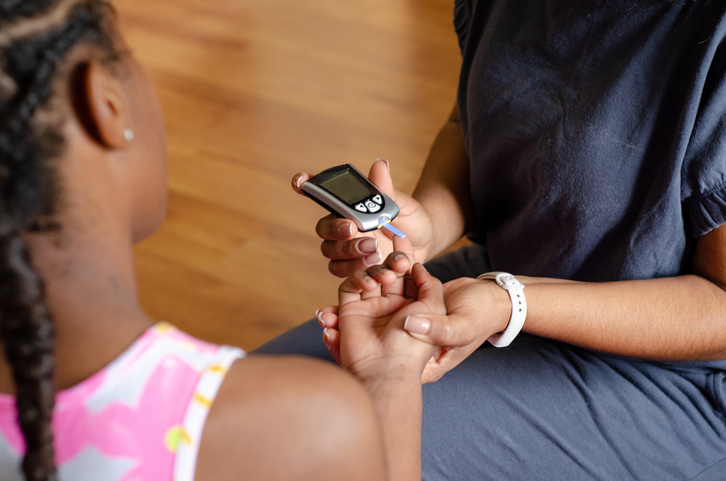
Source: La Lumiere / Getty
Diabetes is one of the most prevalent chronic health conditions in America. But how does diabetes affect people in this country?
In a black family, it can sometimes be hard to talk about health. Whether it’s because of fear that a doctor may take advantage of you, mistrust in the healthcare system as a whole, or a lack of money and resources, Black people in America tend to get left behind when it comes to providing information and treatment for many chronic health conditions that plague our communities. One of those conditions is Diabetes.
According to the American Diabetes Association, in 2019, 37.3 million Americans, or 11.3% of the population, had diabetes. Nearly 1.9 million Americans have type 1 diabetes, including about 244,000 children and adolescents and Of the 37.3 million adults with diabetes, 8.5 million were undiagnosed. Sadly the number of new diabetics grows every year. The ADA estimates that 1.4 million Americans are diagnosed with diabetes every year.
But for Black people, the numbers are even more discouraging. According to HHS, in 2018, Black people were twice as likely as whites to die from diabetes. Black adults are 60 percent more likely than non-Hispanic white adults to be diagnosed with diabetes by a physician. HHS also found that in 2017, Black people were 3.2 times more likely to be diagnosed with end-stage renal disease as compared to whites and 2.3 times more likely to be hospitalized for lower limb amputations.
So how can Black families combat the negative effects of Diabetes? It starts with information and trust in your health providers.
According to the CDC, diabetes is a chronic (long-lasting) health condition that affects how your body turns food into energy. Your body breaks down most of the food you eat into sugar (glucose) and releases it into your bloodstream. When your blood sugar goes up, it signals your pancreas to release insulin. Insulin acts like a key to let the blood sugar into your body’s cells for use as energy. Over time it can cause serious health problems, such as heart disease, vision loss, and kidney disease.
There is no cure for diabetes, but making sure you maintain a healthy weight, eat healthy food, and stay active can all go a long way. The CDC also recommends that you:
- Take medicine as prescribed.
- Get self-management education and support.
- Make and keep health care appointments.
Click here if you would like to learn more about the types of diabetes.
SEE ALSO:
Understanding Epilepsy And How It Affects Black America
Medical Racism: Black Med Student’s Viral Tweet Spotlights False Beliefs About Skin Color And Pain












